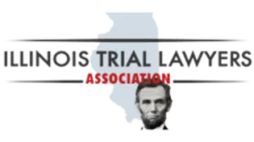
Second District Civil Decision Digest
Decisions dated March 31, 2020 – April 20, 2020
Andrew J. Mertzenich, esq.
*The content, citations, and analysis provided are for informational use only and give a rough overview of decisions. In-depth and independent research should be made before citing a case. Cases are arranged by type, and then chronologically by decision date with the most recent appearing last.
Divorce:
In re Marriage of Brunke, 2019 IL App (2d) 190201
Background: Respondent husband appealed an order of the circuit court of Kane County extending maintenance awarded to petitioner. The petitioner cross-appealed the same order denying her petition to increase maintenance.
Issues on Appeal: Respondent contended that the court abused its discretion in extending maintenance because (1) Petitioner failed to take any steps to become self-sufficient and (2) Petitioner’s assets and income alone are more than adequate to sustain the lifestyle that she enjoyed during the marriage.
Outcome: The Appellate Court affirmed the Circuit Court’s Decision. The court noted that because the Petitioner was never informed in the Judgment for Dissolution of Marriage or by the court that that she had an affirmative duty to seek training or education in order to continue receiving maintenance, the requirement that she seek additional training or education did not affect her. Nevertheless, the court upheld the denial of permanent maintenance on other grounds.
Foreclosure
JPMorgan Chase Bank, N.A. v. Robinson, 2020 IL App (2d) 190275
Background: Chase Bank issued several summonses for defendant. Defendant was served. After defendant did not appear, Chase Bank moved for a default judgment. The court granted the motion and entered a default judgment of foreclosure and sale. Almost seven years after the sale to Szczurek, defendant filed a petition to, inter alia, quash service of process and vacate all orders and judgments entered in the case, arguing that he had been improperly served by a special process server in Cook County. the court dismissed defendant’s petition.
Issues on Appeal: Whether defendant, was properly served and, if he was not, whether he could obtain the relief he sought.
Outcome: The Appellate Court affirmed the dismissal of the petition. The Court stated that it could not take judicial notice of certain information (namely whether a specific zip code was within a specific County) and, therefore, the defendant failed to provide adequate information to quash service.
Municipal, Zoning, and Land Use
Village of Buffalo Grove v. Board of Trustees of the Buffalo Grove Firefighters’ Pension Fund, 2020 IL App (2d) 190171
Background: The defendant Board of Trustees, issued a decision finding that the defendant the widow of a former firefighter, was entitled to receive survivor’s benefits accruing from a line-of-duty (duty) pension following the firefighter’s death. The plaintiff village which had intervened in the Board proceedings, filed an administrative review action. The circuit court affirmed the Board’s decision, and the Village appealed.
Issues on Appeal: The Village argued that (1) the record did not support the Board’s determination that the firefighter’s cancer was caused by an act of duty or the cumulative effects of acts of duty, (2) the lack of evidence of causation demonstrates that the Board impermissibly applied the occupational disease statute’s presumption of causation, and (3) the Board erred in declaring moot the firefighter’s two disability pension applications.
Outcome: The Appellate Court affirmed the Circuit Court’s Decision and, thus, the Board’s decision. The record specifically stated the evidence used in the Board’s decision, and the Board followed statutory procedure in its decision making.
Avery v. GRI Fox Run, LLC, 2020 IL App (2d) 190382
Background: Plaintiffs sought to enforce local ordinances by a private action to recover direct and consequential property damages. The trial court granted the Defendant’s motion to dismiss, with prejudice. Plaintiffs appeal.
Issues on Appeal: Whether the trial court erred in dismissing their complaint and in denying their oral motion to file a third amended complaint. Defendants argued that facts alleged were conclusory, rather than specific, and that the economic-loss doctrine barred their claim.
Outcome: The District Court reversed and remanded. The factual allegations in the Complaint were sufficient to allege private nuisance. While the economic-loss doctrine would bar their prayer for damages, the complaint sufficiently stated private-nuisance, and, therefore, other issues were moot as dismissal was not appropriate.
Centegra Hospital-McHenry v. Mercy Crystal Lake Hospital & Medical Center, Inc., 2019 IL App (2d) 180731
Background: A new hospital system sought to build a new health care facility in McHenry County. They petitioned the Illinois Health Facilities and Services Review Board for certification to build the new hospital. The Board granted the application, albeit waiving the 100-bed minimum and allowing only a 10-bed facility. The Plaintiffs filed for administrative review in the Circuit Court. The court reversed the Board’s decision.
Issues on Appeal: Whether the Board’s decision was against the manifest weight of the evidence and was arbitrary and capricious. Specifically, that the Board failed to provide justification for departing from the 100-bed minimum necessary for a hospital to be constructed.
Outcome: The Appellate Court reversed the trial court’s Order and affirmed the Board’s decision. The Appellate Court reviews the administrative body’s decision, not that of the trial court. The board was within its discretion when it departed from the accepted guidelines. It also had met the statutory requirements to make its decision, and accepted input from many individuals and entities. As such, its decision was neither arbitrary nor capricious. As such, the Board’s decision should stand and the judgment of the circuit court was reversed, and the Board’s decision was affirmed.
Probate
In re S.F., a Minor, 2020 IL App (2d) 190248
Background: Respondent, appealed the trial court’s Order (1) finding that petitioners had standing under the Probate Act of 1975 to bring their motion to remove respondent as plenary guardian of., a minor, and (2) removing respondent as guardian for good cause, on the court’s own motion.
Issues on Appeal: Respondent contended that petitioners lacked standing to bring their petition for removal and that the trial court erred in finding that respondent waived any objections to standing until on the eve of the hearing. The Respondent argued that removal as guardian was against the manifest weight of the evidence.
Outcome: In a preliminary matter, the appellate court determined that the Respondent had not forfeited their objection to standing, as their motion did not give any “surprise or otherwise prejudice” the Petitioners. The appellate court further determined that the Petitioners were “interested persons” within the Probate Act. The Court also found that removal of the Respondent as guardian was warranted and not against the manifest weight of the evidence. The appellate court affirmed the judgment of the trial court.
About the Contributor
Andrew J. Mertzenich is appellate counsel at Prime Law Group, LLC. In his first years of practice, Andrew has argued several times before the Second District. Andrew also presents on Appellate Practice for bar associations throughout the Second District and provides consultation services to local attorneys on how best to approach their appellate issues.
Outside of law, Andrew is a passionate musician. He is Principal Organist at Court Street United Methodist Church in Rockford, IL, where he performs regularly and accompanies the chancel choir, praise band, and children’s choir. Andrew also volunteers with the Land of Lincoln Theatre Organ Society as a technician and performer. He also donates regularly to several causes. Andrew sits on the Boards of the American Guild of Organists – Rockford Chapter and the Land of Lincoln Theatre Organ Society. He is also a regular listener and donor to National Public Radio (NPR).
Andrew can be reached via email at AMertzenich@PrimeLawGroup.com, or by calling 815.338.2040.






